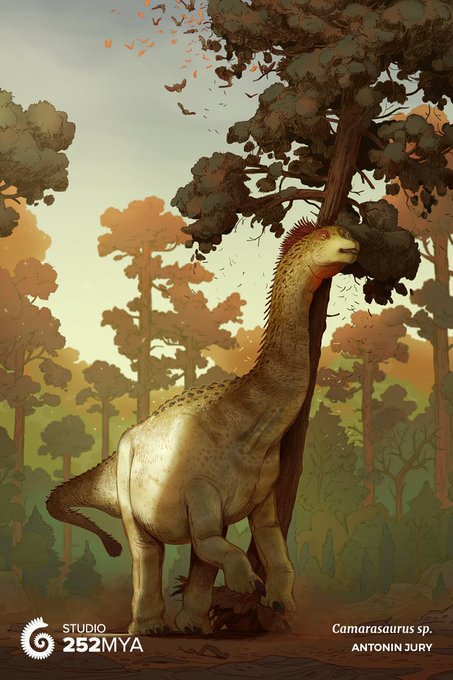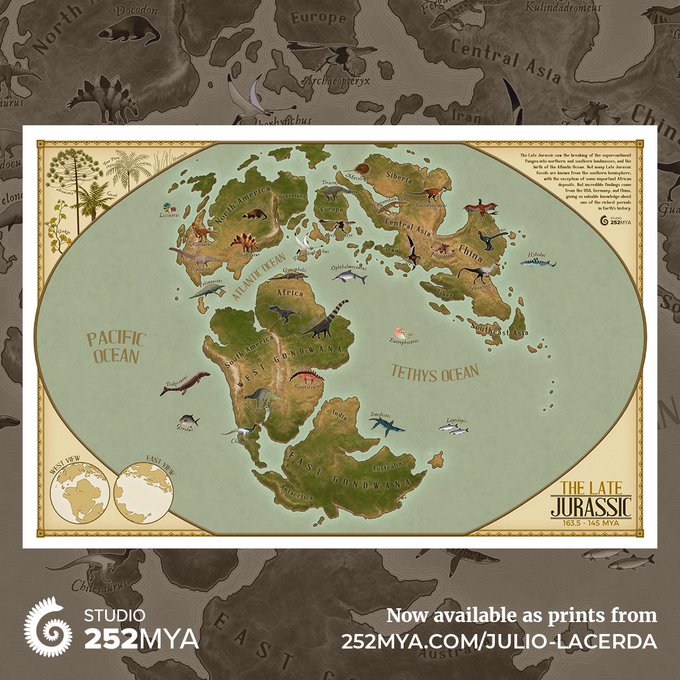Camarasaurus sp. // Antonin Jury
This giant was a common animal in Late Jurassic North America. Its name is taken from the Greek word kamara, meaning vaulted chamber, which refers to its hollow backbone.
https://t.co/jmLSTUQccG
Drepanis coccinea // Lucas Lima
The ʻiʻiwi or scarlet honeycreeper is a symbolic Hawaiian bird known to appear in folklore. It is threatened by extinction due to habitat loss and disease.
https://t.co/ziJAUuxgld
Hesperocyon sp. // @ArtofFabricious
Hesperocyon is one of the earliest members of the Canidae. A distant dog relative, it evolved 39 million years ago. Its slender, flexible body and tail would’ve made it look more like a civet than a dog.
https://t.co/df2RsMttt1
Eumecichthys fiski // @franzanth
The unicorn crestfish lives in open water at around 1000 m (3300 ft) deep. Despite its slender body, fossils suggest that its early relatives looked more like their shorter, round-bodied cousin, the opah.
https://t.co/T8lXEbS5WF
Edmontosaurus annectens // Nathan Rogers
This North American “duck-billed" dinosaur lived near the end of the Cretaceous. It could grow as big, or even larger than a Tyrannosaurus.
https://t.co/NQiyYaEvzu
Yixian pterosaurs // @franzanth
This formation in China is among the richest known site for Cretaceous Period fossils all over the world. It was a lakeside environment with a number of feathered dinosaurs and a variety of pterosaurs that fed on fish.
https://t.co/n5IwBL3H36
We have a snazzy new map! Which period would you like to see next?
https://t.co/Agr5Wpw7IG
Desmatosuchus sp. // @clepsydrops
This heavily armored, 4.5 meter (15 ft) long reptile belongs to a group of plant-eating crocodile relatives called aetosaurs. It is thought that the shovel-shaped snout helped it dig for food.
https://t.co/TFIqoum46r
Avicranium renestoi // @clepsydrops
Avicranium, meaning “bird skull,” is part of a group of tree-dwelling reptiles called drepanosaurs. Despite the similarity of body shape and lifestyle, drepanosaurs aren’t directly related to chameleons.
https://t.co/TFIqoum46r
Vampyronassa // @franzanth
Vampyronassa was described as a vampire squid relative from the Mid-Jurassic. Though similar in appearance, some people doubt the classification due to the trickiness of analyzing cephalopod fossils.
https://t.co/n5IwBL3H36











